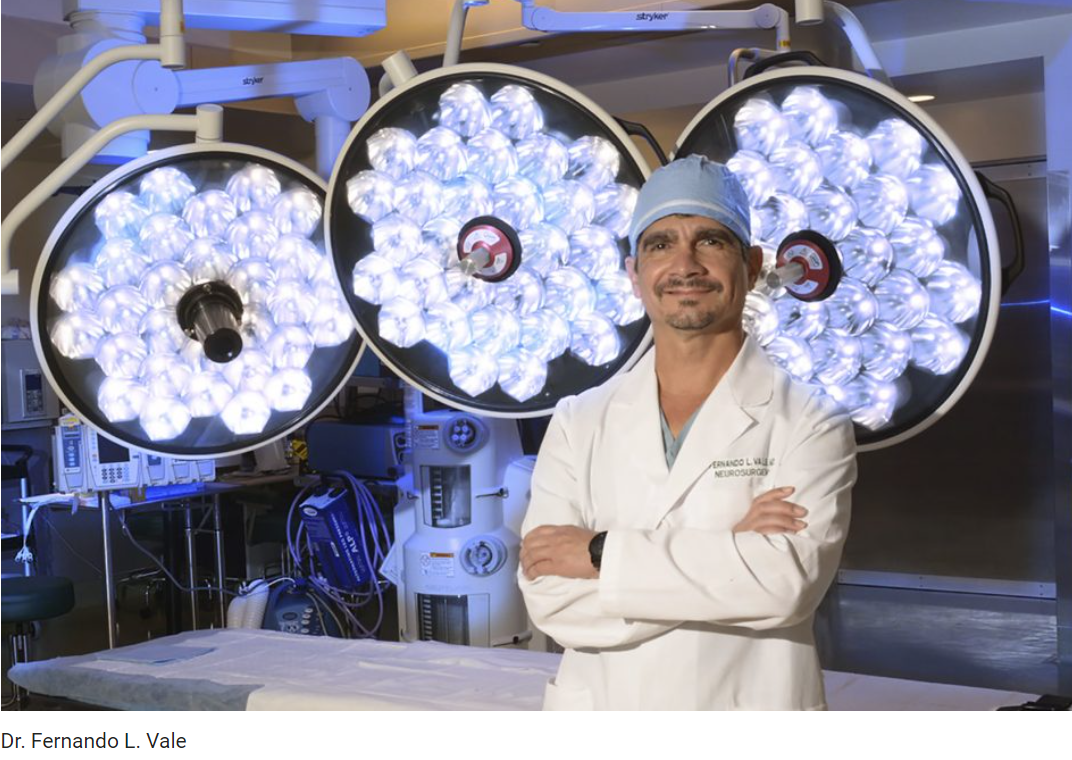Chief, Division of Epilepsy – Medical College of Georgia, Augusta University
- Position:
- The MCG Department of Neurology invites applications and nominations for a Neurologist with specialty training as an Epileptologist to serve as the next Chief of the Epilepsy Division.
- Specialty:
- Leadership, Neurology – Epilepsy , Neurology – Pediatric Epilepsy, Neurology – Research, Neuroscience, Neuroscience, Leadership – Division Chief
- Location:
- Augusta, GA
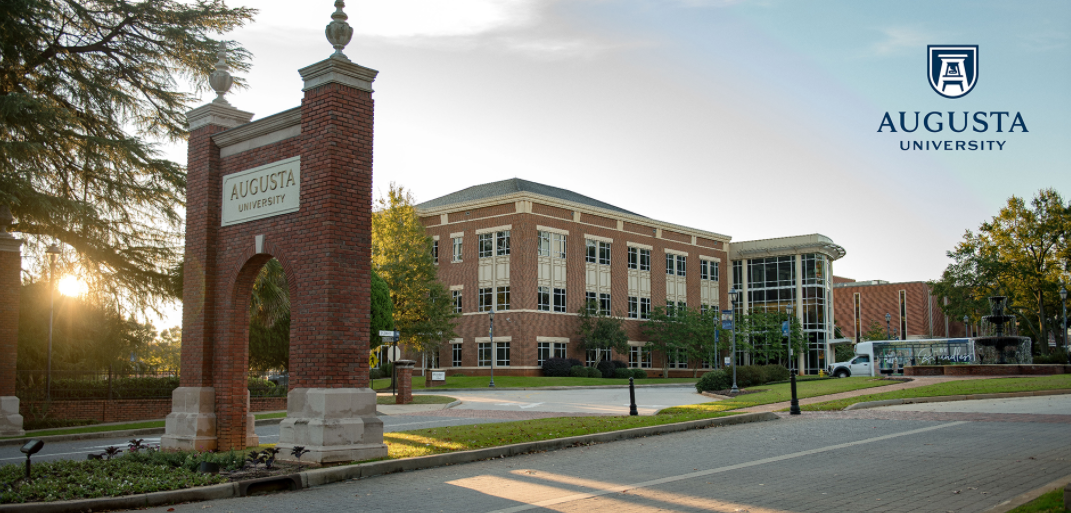
The Department of Neurology at the Medical College of Georgia at Augusta University is seeking a Neurologist with specialized training as an Epileptologist to lead our Epilepsy Section during an exciting time of growth. This position will provide patient care in our outpatient Neurology clinic, Epilepsy Monitoring Unit and provide oversight and mentorship for Neurology residents, fellows and medical students. Engagement in clinical research is strongly encouraged.
Since 1977, MCG’s epilepsy program has been a nationally recognized referral center and has performed thousands of epilepsy-related surgeries. The Augusta University Comprehensive Epilepsy Program is a Level IV center and patients and their families benefit from the most up-to-date technology available. The Neuroscience Center of Excellence at the Medical College of Georgia at Augusta University offers expert patient care in a variety of Neurological and Neurosurgical subspecialties, a Neurocritical Care Unit and a comprehensive stroke program accredited by the Joint Commission of Healthcare Organizations.
Medical College of Georgia is Georgia’s only state-supported medical school. Established in 1828, it is one of the 10 largest medical schools. This position is based at the main campus in Augusta, Georgia. Augusta is Georgia’s second largest city and is home to the Masters Golf Tournament and Ironman 70.3 competition. The city hosts urban and suburban living with a variety of restaurants, play houses, concerts, a newly renovated symphony hall and a recently constructed minor league baseball venue for the affiliate of the San Francisco Giants. Cost of living is low and lifestyle options include outdoor activities such as equestrian, golf, fishing, kayaking, along with miles of cycling and running paths. Augusta is located in proximity to Atlanta, Charlotte, Charleston, and Savannah as well as the seacoast and mountains.
The ideal candidate will have completed an accredited Neurology residency program, have completed a two-year epilepsy fellowship, be board certified in Neurology and have experience commensurate with an academic appointment to the level of Associate Professor or Professor.
Augusta University is an AA/EEO/Equal Access/ADA Employer.
Position Specifics
Division Chief of Epilepsy & Director of EEG, MCG Department of Neurology
The Medical College of Georgia at Augusta University invites applications and nominations for the role of Chief, Division of Epilepsy & Director of EEG. The successful appliant will be an experienced and board-certified Neurologist & surgically-oriented Epileptologist that will play a strategically important leadership role in building upon the tripartite mission of the Level 4 NAEC Comprehensive Epilepsy Center. The information enclosed will provide insight into the unique and exciting details about this opportunity, including information regarding:
- MCG Division of Epilepsy
- Level 4 Epilepsy Center
- Dr. Fernando Vale & Epilepsy Surgery
- MCG Department of Neurology
- Medical College of Georgia
- Augusta University Health System
- Location Details – What it’s like to live in Augusta, Georgia
- How to Apply
Division of Epilepsy
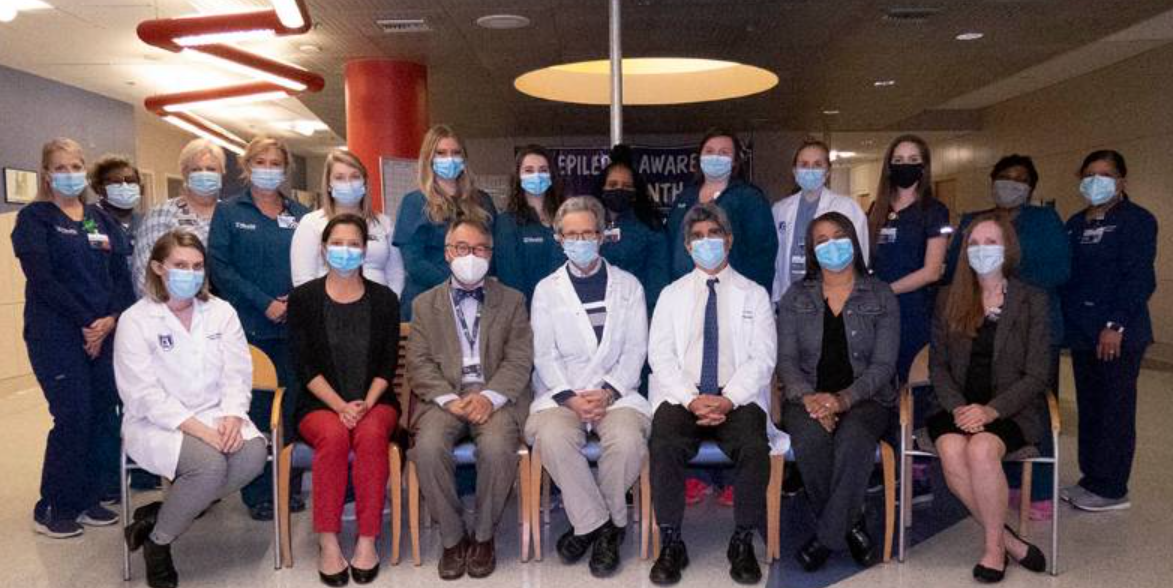
The Medical College of Georgia at Augusta University is home to one of the leading epilepsy centers in the country. Our objective is for our adult and pediatric epilepsy patients to live “seizure free”.
Since 1977, MCG’s epilepsy program has been a nationally recognized referral center and has performed thousands of epilepsy-related surgeries. The National Association of Epilepsy Centers recognizes the Augusta University Comprehensive Epilepsy Program as a Level IV center, the highest designation given. Patients and their families benefit from the most up-to-date technology available in the area.
Over two million people in the United States are diagnosed with epilepsy, a syndrome marked by recurrent seizures. As a result of new medical and surgical advances, freedom from seizures is now a realistic possibility for most patients with epilepsy.
Meet the MCG Epilepsy Team
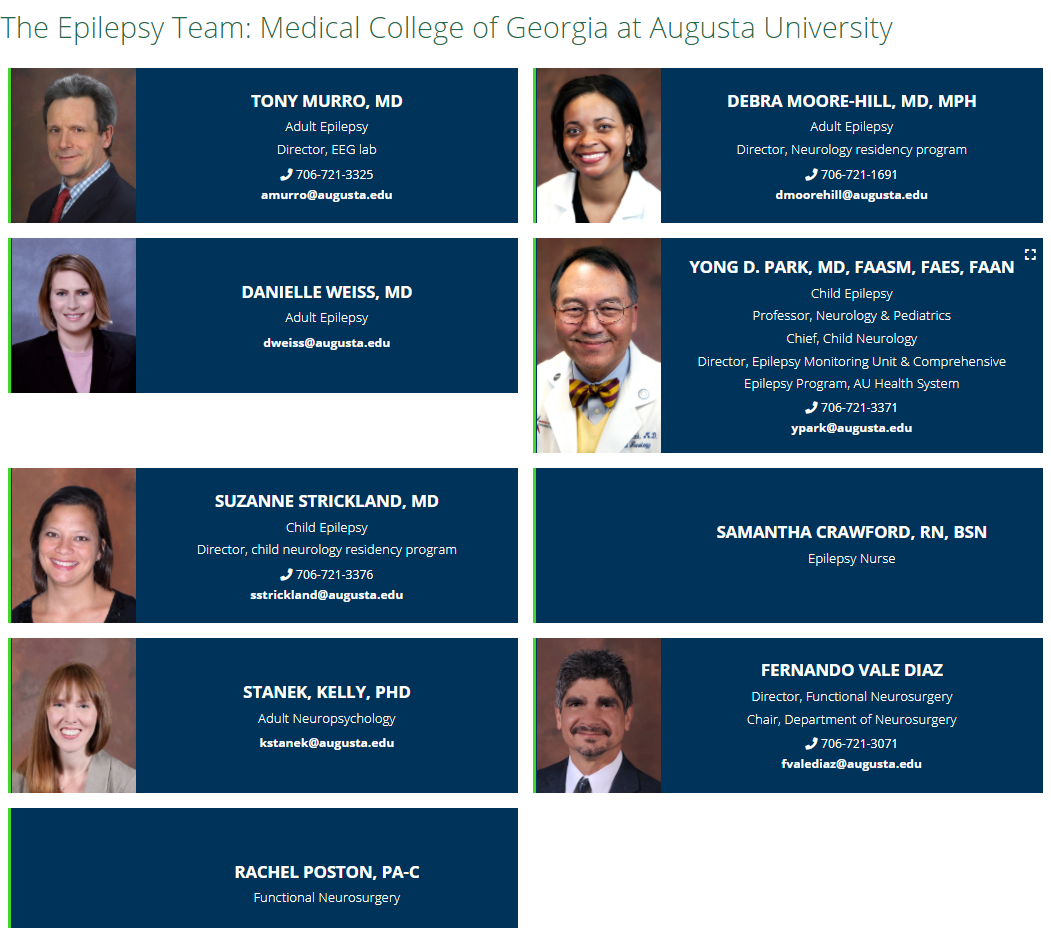
Clinical Epilepsy Program
The Epilepsy Program at Augusta University uses advanced technology to accurately diagnose epilepsy:
-
subtraction ictal / SPECT co-registered to MRI(SISCOM)
- electroencephalography
- computerized tomography (CT)
- magnetic resonance imaging (MRI)
- positron emission tomography (PET)
-
Our hospital provides in-patient video EEG epilepsy monitoring, including stereoelectroencephalography (stereo EEG) and depth electrodes or subdural electrodes as investigation.
Clinical Neurophysiology Fellowship Program
Our long established program, initiated in 1980, provides the comprehensive Clinical Neurophysiology training needed to successfully complete the American Board of Psychiatry and Neurology Certification of ‘Added Qualifications’ in Clinical Neurophysiology.
As a fellow, you will acquire a broad range of interpretative skills, learning to:
- Interpret routine EEG (electroencephalogram)
- Administer prolonged scalp and intracranial EEG-video recording
- Ambulatory EEG
- Evoked potentials
- Electrocorticography
- EMG-nerve conduction studies
- Single fiber EMG
- Movement disorder monitoring
- Botulinum toxin injection
- Nerve ultrasound
- Autonomic studies
In addition, we offer a rich training experience with didactic instruction and clinical teaching in our:
- Neuromuscular Clinics
- Inpatient Epilepsy Monitoring Unit
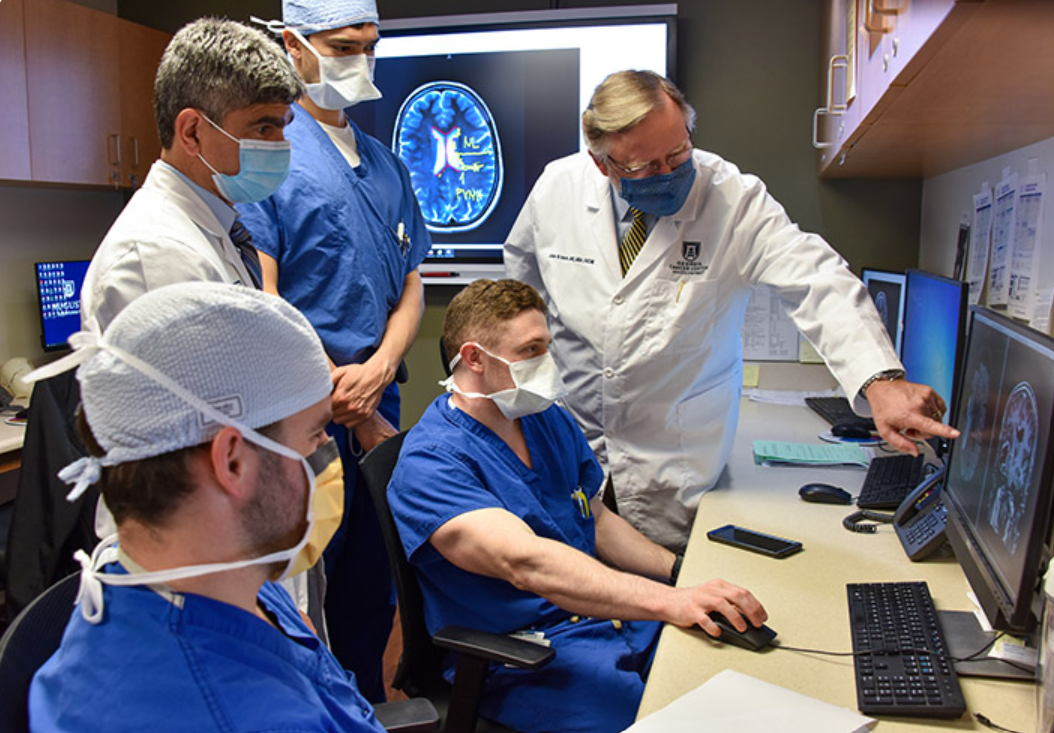
Level 4 Comprehensive Epilepsy Center
The Epilepsy Center in Augusta, Georgia was the first in Georgia or South Carolina to be recognized by the National Association of Epilepsy Centers as a Medical Surgical Level IV Epilepsy Center, the highest possible designation. It serves as a national referral center for adult and pediatric patients, treating the most complex cases of epilepsy.
We offer one of the most experienced epilepsy programs in the country. Our epilepsy team is dedicated to discovering and delivering the best form of epilepsy treatment and management to improve the quality of life for each patient.
We take a comprehensive approach to diagnosing and managing epilepsy and its effects on the patient’s life. Some of our services and specialists include:
- A team of adult epilepsy specialists (epileptologists)
- Skilled and experienced epilepsy neurosurgeon that performs the full range of epilepsy surgeriesfrom vagus nerve stimulation to temporal lobectomy to hemispherectomy
- A dedicated Epilepsy Monitoring Unit staffed by registered nurses specially trained in epilepsy care as well as electroencephalography (EEG) technologists trained to monitor and record the brain’s electrical activity
- Neuropsychologists for testing cognitive function
- Pharmacists with advanced knowledge of antiepileptic drugs
- Access to clinical trials involved with epilepsy research as the only public academic medical center in Georgia
- Nurse clinicians who educate patients and answer day-to-day questions
- Social workers who help patients and families cope with epilepsy
- An Epilepsy Coordinator who handles scheduling, admissions and insurance issues
- Comprehensive diagnosis and treatment through Patient Family Centered Care for adult and pediatric patients with epilepsy
Dr. Fernando Vale & MCG Epilepsy Surgery
The MCG Epilepsy Surgery program is led by Dr. Fernando Vale, Professor & Chair, Department of Neurosurgery. Dr. Vale was recruited to MCG as Department Chair in 2019 with the express goal of building the neurosurgical service lines, specifically the epilepsy surgery and related programs.
Vale, who has served as USF vice chair for a decade and also directs the department’s Functional & Epilepsy Division and Neurosurgery Residency Program.
“Dr. Vale has helped build and sustain innovative educational and clinical programs at USF as well as collaborations with affiliated hospitals, all of which are essential in today’s dynamic health care and medical education environments,” says Dr. David C. Hess, MCG dean. “He will be a servant leader who works alongside the great neurosurgery faculty here as well as collaborators across our medical school, state and nation to foster innovation and build every aspect of what we do here at MCG. We welcome him.”
Vale has served as chief of the Department of Neurosurgery at Tampa General Hospital, a teaching hospital for USF that serves west Florida, for a dozen years and as director of the Neurosciences Interdisciplinary Program at Florida Hospital Tampa, a USF teaching hospital that is part of the not-for-profit Adventist Health System, for six years. He is a member of the Executive Committee of USF’s Signature Interdisciplinary Program in Neuroscience and has served as neurosurgery track director for the Fourth Year Medical School Curriculum Committee since 2010.
He is an examiner in functional and epilepsy surgery for the American Board of Neurological Surgeons and has served as a guest examiner for the board multiple times. Vale has been a member of the Executive Committee of the Southern Neurosurgical Society since 2005, including terms as secretary from 2009-12 and president in 2013.
Vale’s clinical expertise includes epilepsy, low-grade brain and spinal tumors, or gliomas, pituitary tumors, movement disorders and spine surgery. His research interests include new minimally invasive approaches for epilepsy surgery as well as new techniques to study the molecular basis of the condition that affects about three million adults and a half million children nationwide. He also is a principal investigator on studies to improve the treatment and recovery of patients with spinal cord injury and spine disease and evaluating sealant options following brain or spine surgery.
He is a 1991 graduate of the University of Puerto Rico School of Medicine in San Juan and completed his neurosurgery training at the University of Alabama at Birmingham Hospital in 1997. Vale joined USF faculty that year as co-surgical director of the Parkinson’s Disease Surgery Program at USF and Tampa General Hospital, and surgical director of the Comprehensive Epilepsy Program at Tampa General.
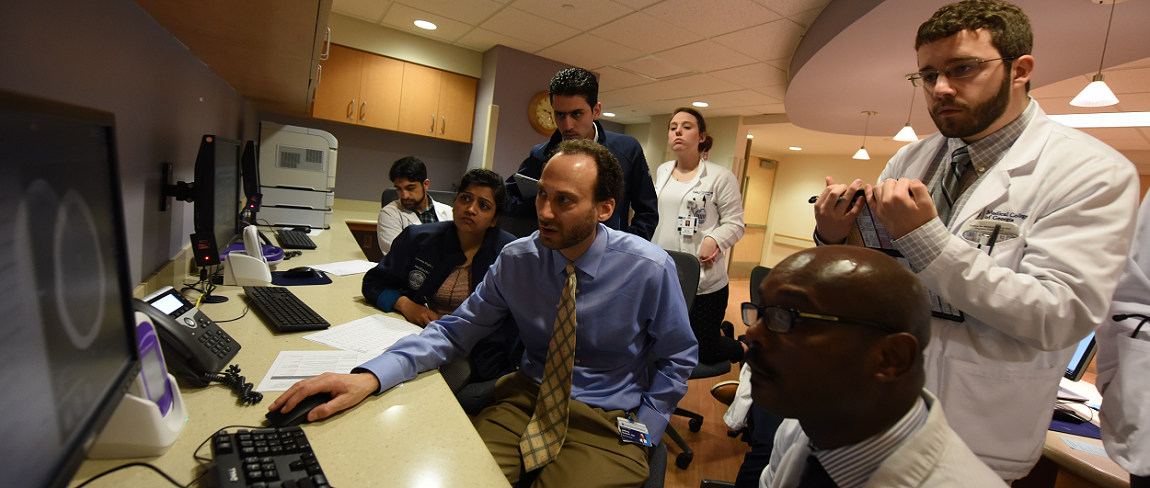
Department of Neurology
The Department of Neurology at the Medical College of Georgia at Augusta University aims for the highest quality of clinical care, the best training experience for our medical students, residents, and fellows, and the performance of cutting-edge research.
Our teaching mission includes medical students, residents, and fellows undergoing advanced training. Research activities in the department include both basic science and clinical and translational investigations. Additionally, our multidisciplinary Neuroscience Center of Excellence facilitates active collaborations with subspecialists from other departments including general neurosurgery, neuroradiology, neuro-otology, neuro-ophthalmology, functional neurosurgery (deep brain stimulation and epilepsy surgery), neuro-gastroenterology and basic science. Our facility houses a wide variety of other specialties including a level I trauma center, and seven ICUs (neurology, shock trauma, surgery, pediatric, neonatal, cardiology, and medical).
Augusta University Health’s centers,
- Comprehensive Stroke Center: A pioneering 29 stoke/telestroke network and a JC certified Comprehensive Stroke Center (first in Georgia)
- A National Parkinson’s Foundation Center of Excellence
- A NAEC Level 4 Epilepsy Center
- An ALS Association Certified Treatment Center of Excellence

Medical College of Georgia
The impact of the state of Georgia’s only public medical school spans from its founding nearly 200 years ago, in 1828, as one of the nation’s first medical schools to its current role optimizing health and health care in Georgia and beyond through education, discovery and service.
The Medical College of Georgia is one of the nation’s largest medical schools by class size, with 260 students per class. The educational experience is anchored by the main campus in Augusta, regional clinical campuses for third- and fourth-year students across the state and a second four-year campus in Athens in partnership with the University of Georgia. MCG’s expanding partnerships with physicians and hospitals across Georgia currently provides about 350 sites where students can experience the full spectrum of medicine, from complex care hospitals to small-town solo practices. MCG and its teaching hospitals also provide postgraduate education to more than 500 residents and fellows in 50 different Accreditation Council for Graduate Medical Education-approved programs.
Our researchers and clinicians focus on what most impacts the health of Georgia’s and America’s children and adults, including cardiovascular biology and disease, cancer, neurosciences and behavioral sciences, public and preventive health, regenerative and reparative medicine, personalized medicine and genomics. Our physician faculty also share their expertise with physicians and patients at about 100 clinics and hospitals statewide.

Augusta University Health System
AU Medical Center
The Augusta University Medical Center serves the state of Georgia. Augusta University Health is a 520-bed tertiary hospital that provides many services not available in other facilities in the region. Specialized services include the region’s best-equipped and busiest ACS verified Level I Trauma Center, serving patients from over 13 counties, and specialized transplantation for pancreas and kidney.
Location – Augusta, Georgia

A timeless locale, a visit to Augusta is a life-altering lesson in Southern hospitality. While other places have undergone cultural revolutions, Augusta underwent a cultural evolution instead, trading big city lights and loud, busy streets for cold sweet tea and a shore-side view of the Savannah River. Downtown, locally owned shops and restaurants mingle in the shade of memorable hangouts, and state-of-the-art galleries beckon artists, lovers, thinkers and dreamers alike to the South’s “Garden City.”

Augusta is so much more than just a cozy place to live. Spearheaded by the next generation of musicians, foodies, artists and go-getters, the old city comes to life at night, offering live music, theater shows and a wealth of hole-in-the-wall eateries built to please. In addition to serving as a haven of technology and the arts, Augusta is also home to some of the nation’s most beautiful lakes and trails, offering year-round outdoor adventures.

Sporting life is synonymous with the Augusta name, and the city proper is home to a number of professional baseball, roller derby and rugby teams. Several annual sporting events take place in and around Augusta, including the Ironman 70.3 Augusta triathlon, the Augusta Futurity and the always exciting Augusta Southern Nationals, dubbed by those in the know as the “World’s Richest Drag Boat Race.”






